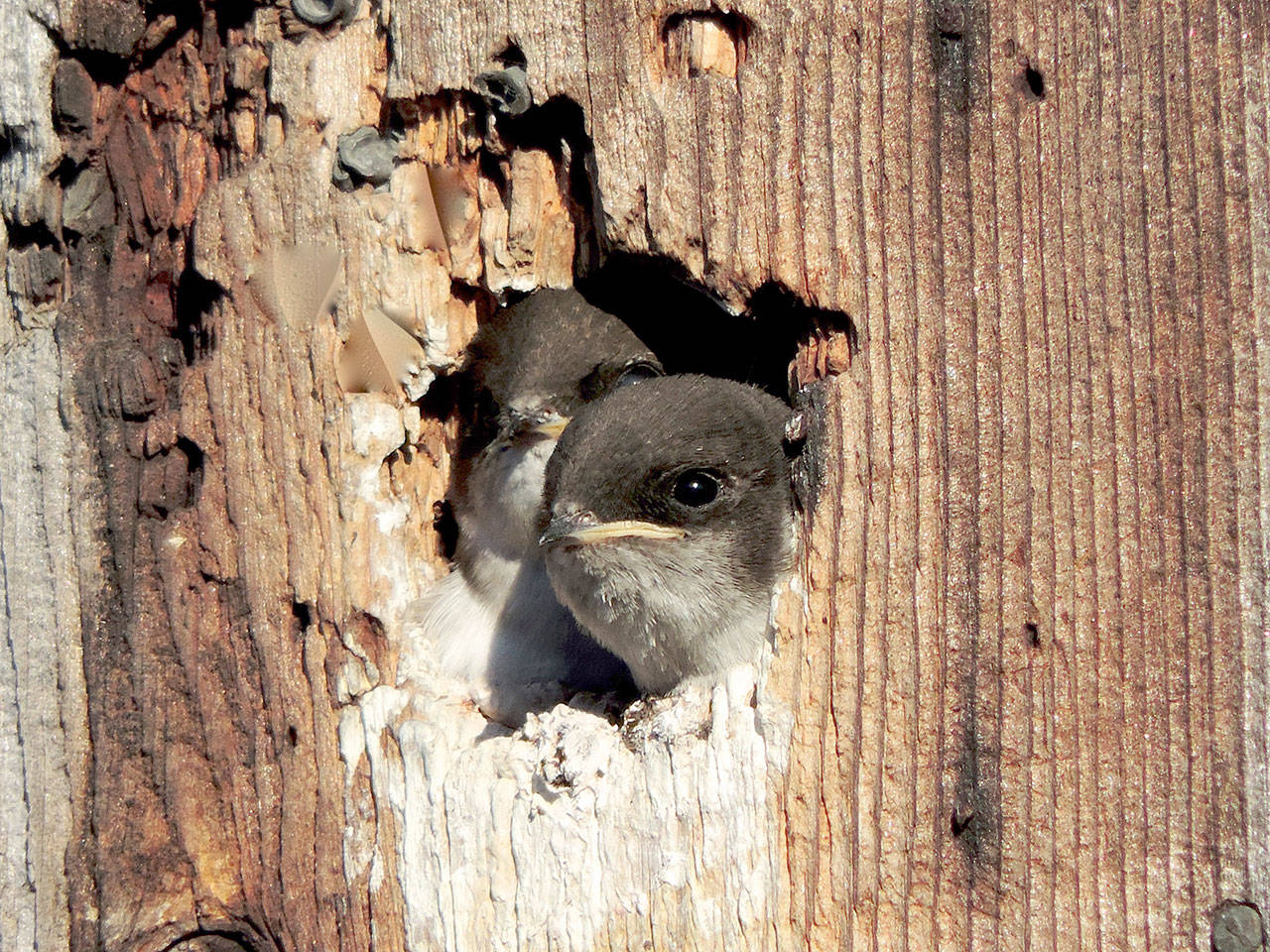EDITOR’S NOTE: This is another story in an intermittent series about outings that local residents can enjoy during a time when all are urged to keep their distance from each other and recreational venues are closed.
PORT TOWNSEND — Like the humans around here, birds are nesting — and singing in choirs more audible than ever.
“There’s a natural experiment going on that we could dive into,” said Robyn Bailey, the Cornell Lab of Ornithology scientist who appeared in Centrum’s Communiversity program Monday.
People tell her they’re hearing birdsong better since the coronavirus pandemic quieted much of the country’s motor traffic. And that’s only a chip of what’s taking place during, as she put it, “this pause that we’re on.”
In her 90-minute online presentation delivered live via Zoom, Bailey invited her viewers — 62 households — to participate in bird- and nest-watching, forms of citizen science that can help the Cornell lab understand the changing world of humans and wildlife.
“It’s no exaggeration,” she said, “that much of what we know about birds is because of everyday people,” contributing counts and observations to websites such as NestWatch.org and FeederWatch.org.
As universities put their research on hold, the Cornell lab is turning to people at home, in their yards and on their neighborhood walks.
Last year brought an awakening, Bailey said. A report of a bird population loss numbering 2.9 billion since 1970 became “a media sensation.”
More information awaits at 3billionbirds.org, she noted, adding it’s not too late to tackle that trend.
“There is hope; our best hope is you,” Bailey declared before she outlined a list of at-home measures to give birds better chances at raising families:
• Put stickers or other bird deterrents on windows.
• Keep cats indoors, or harness them for walks, or put in an enclosed “cat-io” patio.
• Plant low, medium-height and tall plants to host a variety of birds.
• Skip pesticides so birds can eat the bugs.
• Reduce plastics and dispose of them carefully.
• Drink “bird-friendly,” shade-grown coffee.
The Cornell lab also calls people to join its “data quests.” The lab is studying dark-eyed juncos and flycatchers, among others, so backyard birders are asked to monitor their nesting behavior using NestWatch.org.
The site provides information for amateur ornithologists out there in springtime, while FeederWatch.org is a site to use in winter.
“It’s still fairly early in the nesting season,” Bailey said, adding NestWatch has a guide to choosing birdhouses for the right species.
“I’m curious to see, when the data come in, if anything is different” in the wake of the COVID-19 pandemic, she added.
During the question-and-answer portion, a viewer asked Bailey why the birds seemed to have disappeared from a backyard feeder in recent weeks.
That’s a common question this time of year, she said.
Bailey answered that, when birds’ natural foods — insects and plant life — are abundant, those feeders will see reduced visits.
“It doesn’t mean you should stop,” Bailey said.
When they have young to feed, and they’re exhausted from building nests and caring for hatchlings, avian parents can use the food humans are offering, she added.
Cornell also runs eBird, an app that helps people track the birds they see and hear around their homes.
Bailey urged residents to take notice of the common species — robins, juncos and chickadees — since surprises, even comedy, are out there.
She once received a photo of a great horned owl nesting in the middle of a great blue heron colony.
Bailey’s Communiversity presentation was the last from Centrum for a while.
The nonprofit producer of workshops, festivals and artist residencies suspended its May through August gatherings, including the Festival of American Fiddle Tunes and the Acoustic Blues Workshop, until summer 2021.
The Port Townsend Ukulele Festival and the next Communiversity program, with photographer Richard Ross presenting his “In Justice” series, are still on for September.
For information, go to Centrum.org or call 360-385-3102.
________
Diane Urbani de la Paz, a former features editor for the Peninsula Daily News, is a freelance writer living in Port Townsend.

